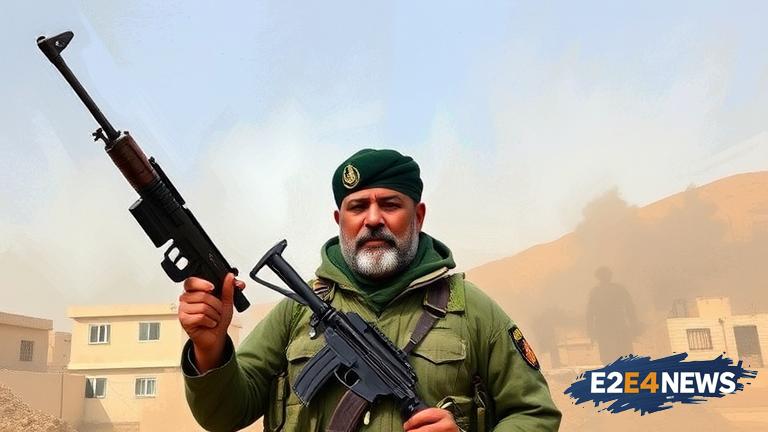The Balochistan Liberation Army (BLA) has intensified its guerrilla warfare across Balochistan, resulting in the deaths of a senior Pakistani officer and 22 others. The attacks, which took place in various parts of the province, have raised concerns about the escalating violence in the region. The BLA, a separatist group fighting for independence, has been carrying out attacks against Pakistani security forces and government installations. The group has been using guerrilla tactics, including ambushes and bombings, to target its enemies. The latest attacks are seen as a significant escalation of the conflict, which has been ongoing for decades. The Pakistani government has been trying to quell the insurgency, but the BLA has continued to carry out attacks, causing significant damage and loss of life. The group’s leader, Basheer Zeb, has vowed to continue the fight for independence, despite the heavy toll on civilians. The Pakistani military has launched several operations against the BLA, but the group has managed to evade capture and continue its attacks. The conflict in Balochistan has been fueled by a range of factors, including poverty, unemployment, and a sense of marginalization among the local population. The region is rich in natural resources, but the benefits have not been shared equally among the population. The BLA has been able to tap into these grievances, recruiting disaffected youths and using them to carry out attacks. The Pakistani government has been accused of human rights abuses in its efforts to quell the insurgency, including enforced disappearances and extrajudicial killings. The international community has called for restraint and dialogue to resolve the conflict peacefully. However, the BLA has refused to negotiate, demanding independence as a precondition for talks. The conflict has also had a significant impact on the local economy, with many businesses forced to close due to the violence. The region’s infrastructure has also been damaged, making it difficult for aid to reach affected areas. The Pakistani government has promised to develop the region and address the grievances of the local population, but progress has been slow. The BLA has continued to carry out attacks, including a recent ambush on a Pakistani military convoy, which killed several soldiers. The group has also targeted Chinese workers and engineers, who are involved in several development projects in the region. The Chinese government has expressed concern about the safety of its citizens and has called for increased security measures. The conflict in Balochistan has significant implications for regional stability, with the potential to spill over into neighboring countries. The international community has called for a peaceful resolution to the conflict, but a solution remains elusive. The BLA’s guerrilla warfare has made it difficult for the Pakistani military to launch a decisive blow against the group, and the conflict is likely to continue for some time. The human cost of the conflict has been significant, with thousands of civilians caught in the crossfire. The Pakistani government has established a number of camps for internally displaced persons (IDPs), but conditions are harsh and many are struggling to survive. The conflict has also had a significant impact on the region’s social fabric, with many families torn apart by the violence. The BLA’s attacks have been widely condemned, but the group remains popular among some sections of the local population, who see it as a symbol of resistance against Pakistani rule.
